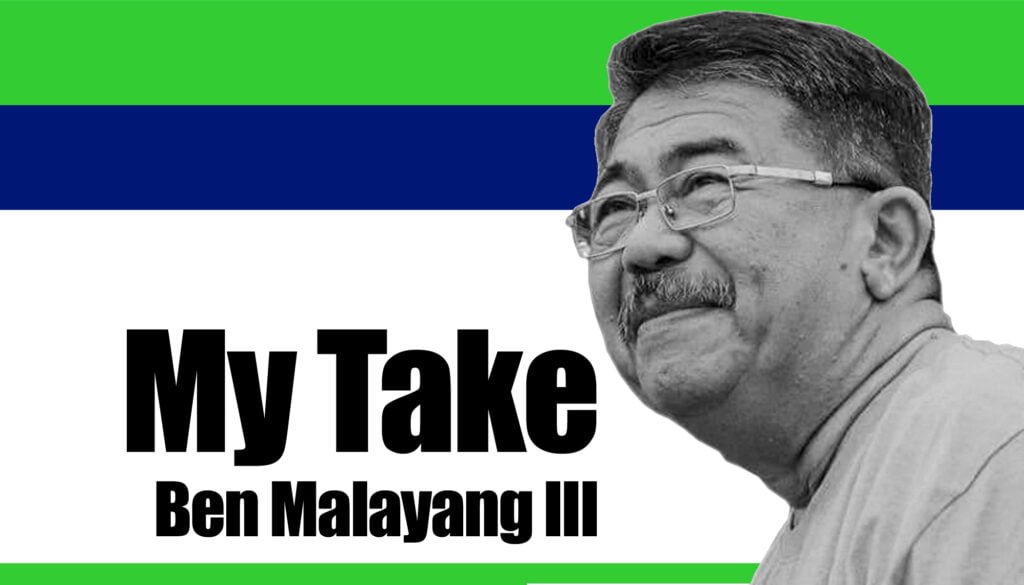
When it was announced on October 8 that Maria Ressa won the 2021 Nobel Peace Prize, there were jubilations among many Filipinos. It’s something ennobling of our country and people.
But some were not happy. The following day, National Artist for Literature, F. Sionil Jose, wrote a scathing Facebook post saying that Ressa does not deserve the award, at least not for the Nobel Peace Prize Committee’s announced reason of her “fighting for press freedom”. Jose contends that the “Philippine press is alive and well not because of Maria Ressa”, that the closure of ABS-CBN is not because of press freedom but about non-payment of taxes, and that journalists’ killings, while some happened during President Duterte’s term, have happened before and that those that happened recently could not be laid on President Duterte’s door.
Manila Times’ Rigoberto Tiglao chimed in soon after, saying that the Nobel’s justification that Ressa courageously reported on the Duterte regime’s controversial and “murderous anti-drug campaign” resembling “a war waged against the country’s own population” is “clearly a total lie and a fabrication” and that Ressa used her media clout against the Administration to fight libel and foreign-funding lawsuits against Rappler.
Not to be outdone, Presidential Spokesperson Harry Roque added: Ressa deserves to be congratulated, but the award is wrong because press freedom prevails in the country.
Atty. Pacheco Seares in yahoo!news (https://ph.news.yahoo.com/seares-criticize-maria-ressas-nobel-085700359.html) summarizes the criticisms to be about three issues: (1) press freedom in the country; (2) Ressa deserving the award; and (3) Ressa’s nationality and citizenship. Jose and Roque say that there’s no censorship in the country, that we have a thriving press freedom, and so Nobel’s award to Ressa “for fighting for press freedom” is unjustified. To Tiglao, Ressa’s fight was not for press freedom but to ward off legal liabilities. And because the premise of the award is wrong, to all three, Ressa does not deserve the award. Is Ressa a Filipino? She is, she says, but has dual citizenship, Filipino and American.
My take: the Nobel Peace Prize, even if among the world’s most prominent and prestigious awards, has always stirred controversy. Most, if not all, of its selected winners have been controversial because they usually got the award for speaking to power more loudly than most. They’ve been celebrated and castigated. Venerated and vilified. Received and rejected. The choice of winners has been both cheered and jeered.
The 14th Dalai Lama, Malala Yousafzai, Al Gore, Barach Obama, Yasser Arafat, Nelson Mandela, Rigoberta Menchu, Jimmy Carter, the Inter-Governmental Panel on Climate Change (IPCC), the International Committee of the Red Cross, and Aung San Suu Kyi, are among 137 Nobel Peace Laureates awarded since 1901. They had adorers and blasters. Their selection were commended and condemned by officials and ordinary folks, nobles and nobodies, rulers and rebels, and governments.
But, says, Seares, it all comes to this: it’s the judges’ call. And they made a call on Maria Ressa. Do you like the call? Your decision. Don’t like it? Tough. Want to say something about why you like or don’t like the call? Go ahead. But it won’t change the fact that Ressa’s a 2021 Nobel Peace Laureate.
My take: Celebrating peace movers – justice advocates, really – is a noble act. Casting aspersions and doubt on the platform that does so because of its choices, or on those chosen, is ignoble. Especially if driven by the base urge to pushback on how the winners cast shadows on the proud, vain, and powerful. – NWI



